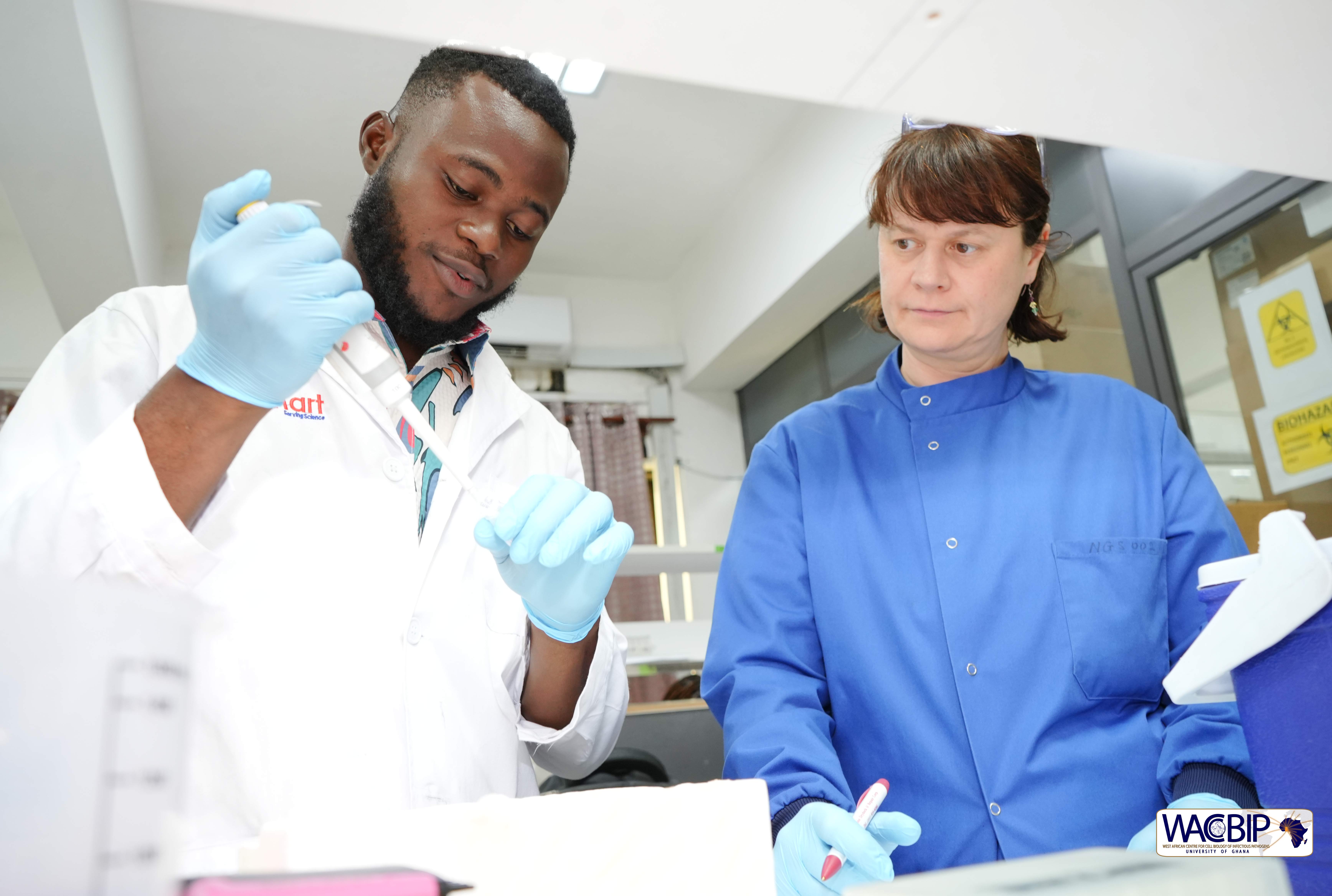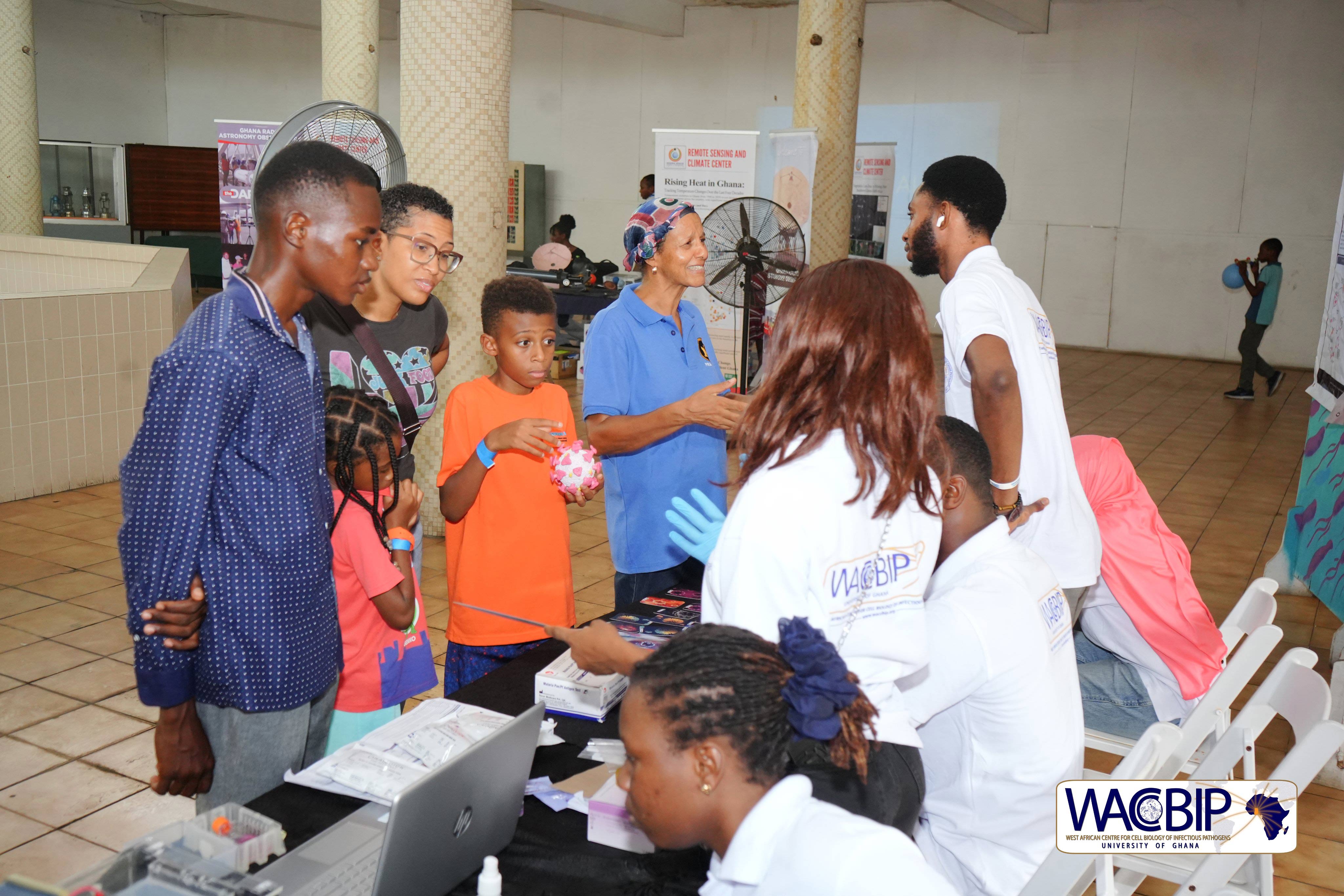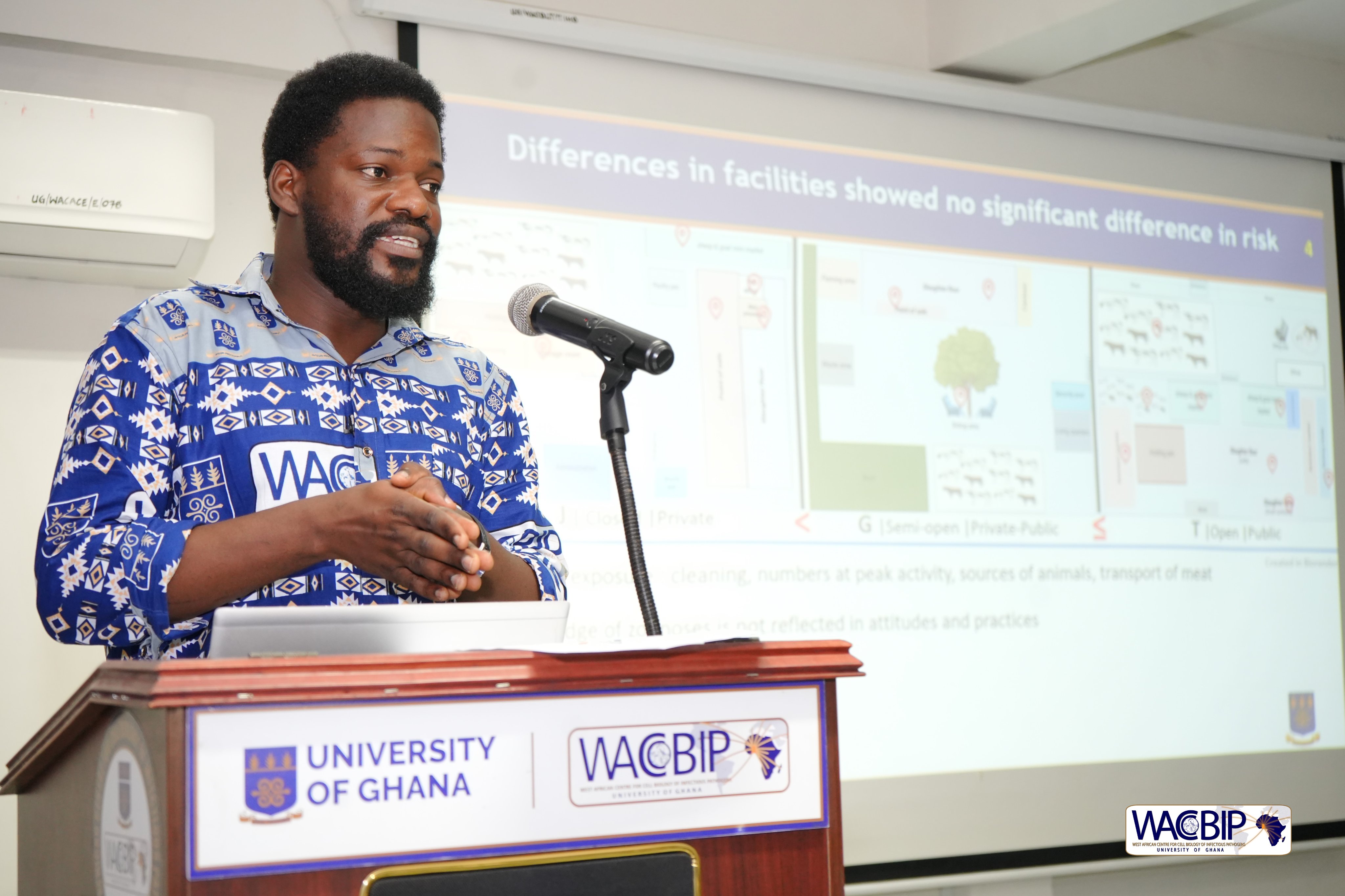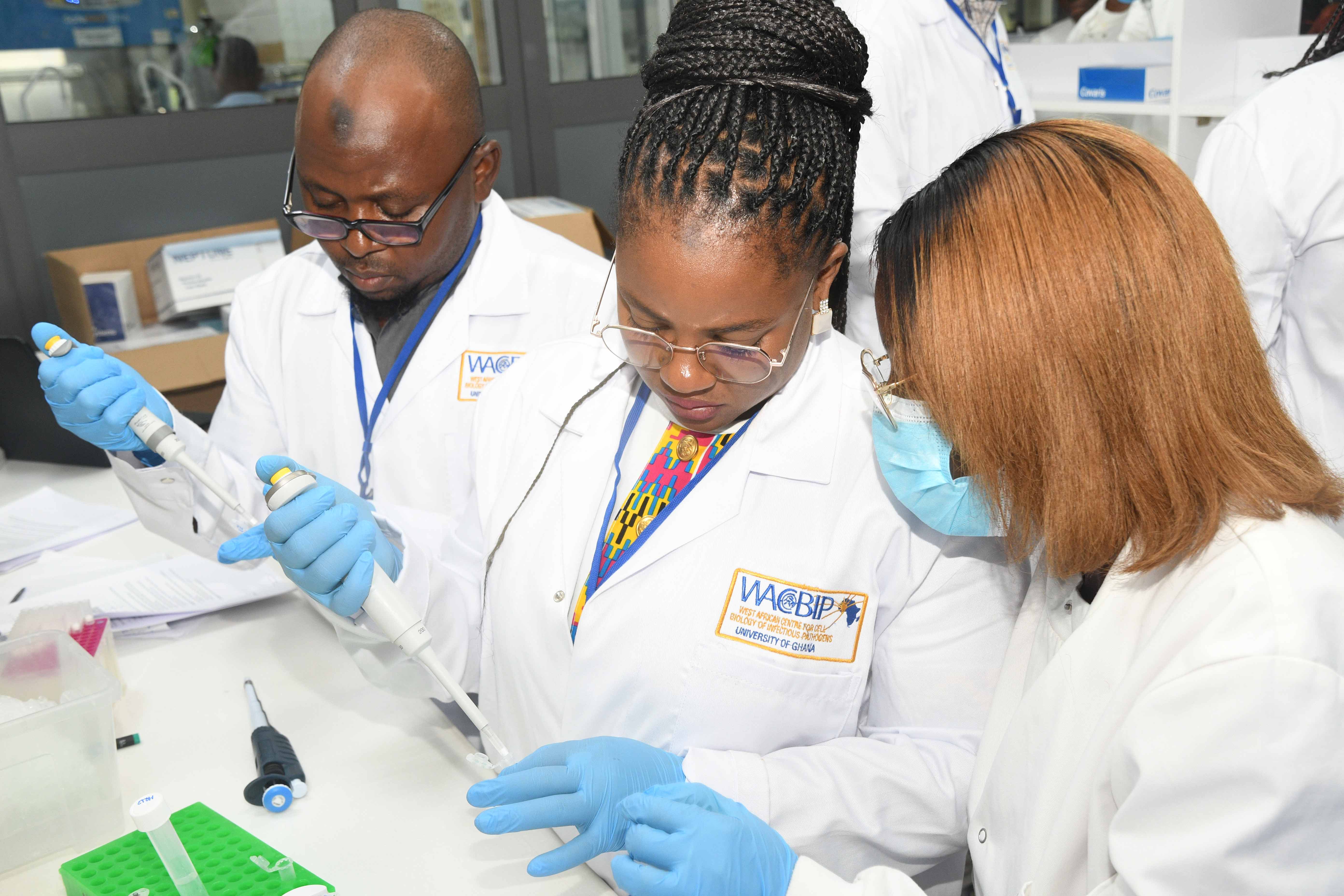
The three-day meeting, which featured speakers from some of the world's top institutions including the London School of Tropical Medicine & Hygiene, Institut Pasteur in France, University of Oxford, University of Glasgow, Institute of Molecular Medicine in Portugal, University of Edinburgh, and Oxford Brookes University, also provided the platform for researchers to present the latest data on trypanosomiasis, with the aim of informing policy and strategy towards combatting the disease. National public sector organisations such as the Trypanosomiasis & Tsetse Control Unit (TTCU) and the Animal Research Institute of the Council for Scientific and Industrial Research (CSIR) were also represented.
[caption id="attachment_5986" align="aligncenter" width="1013"]
 Prof. Sue Vaughan, a researcher from the Oxford Brookes University interacts with participants[/caption]
Prof. Sue Vaughan, a researcher from the Oxford Brookes University interacts with participants[/caption]Prof. Sue Vaughan, a researcher from the Oxford Brookes University in the United Kingdom, who convened the meeting, welcomed the group of researchers and spoke about the importance of collaborating to develop capacity towards tackling the disease. She said it was necessary for scientists involved in tsetse fly research to share important information towards building a comprehensive knowledge base that would lead to the eventual elimination of the disease.
Professor Gordon Awandare, speaking to a group of journalists after the opening day of the meeting, highlighted the importance of collaborative efforts such as TsetseNET towards eradicating disease. He noted that these kinds of networks among scientists thrive on funding regimes directed at supporting the conduct of research and the extensive dissemination of findings towards knowledge and capacity building. He stressed that capacity building in Science is not optional and urged government to move forward with the establishment of the Research and Innovation Fund. He, however, cautioned that funds needed to be distributed in a fair way, based on merit, to people who would use them for valuable research.
[caption id="attachment_5969" align="aligncenter" width="1024"]
 Professor Gordon Awandare speaks to journalists[/caption]
Professor Gordon Awandare speaks to journalists[/caption]“If you want proper research to be done, it has to be based on merit,” Prof. Awandare said. “If you give the funds to people who don't have the capacity to do quality research, you're throwing the money away, so there has to be a very competitive process of delivering the funds to the right people so that the results can be generated that are useful for our development.”
The meeting saw several presentations on various completed and ongoing studies on trypanosomiasis and the tsetse fly, covering disease pathogenesis, prevention, control and treatment, and drug resistance, as well as various diagnostic and therapeutic approaches. Speakers from the TTCU also provided a detailed overview of the epidemiology and status of tsetse-transmitted trypanosomiasis in Ghana.
Dr. Jennifer Afua Ofori, a WACCBIP/CSIR-ARI postdoctoral fellow, who presented work she is completing on characterising natural trypanosomes infection in animals in Ghana, spoke about the state of trypanosomiasis and the rates of reinfection among animals in the country. She said that the data suggested that drugs used in treating infected animals are turning out to be ineffective, pointing to the possibility of drug resistance. She said that current research was directed at ascertaining whether the cause of reinfection was the resistance to drugs used or whether there were other factors responsible.
There was also a practical session on tsetse fly identification, where participants were given the opportunity to look at tsetse flies through a magnifying glass and microscope to identify their physical attributes as well as to identify see how to distinguish them from other closely related biting insects.
In his closing remarks, Dr. Jack Sunter, another researcher from Oxford Brookes University and co-convener of the meeting, thanked the WACCBIP team for hosting the meeting and organising the logistics needed for its successful completion.
Prof. Sue Vaughan thanked the funders, the Global Challenges Research Fund (GCRF) and the British Academy of Medical Sciences for their support towards the organisation of the meeting. She also thanked WACCBIP for hosting the workshop and was thankful for the many years of collaboration she has had with faculty and students at the Centre. She highlighted the importance of the presence of representatives from the TTCU at the meeting, saying it showed her the other side of tsetse research and taught her a few things she hadn't thought about before.






